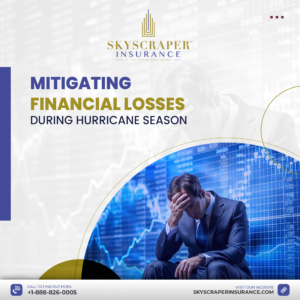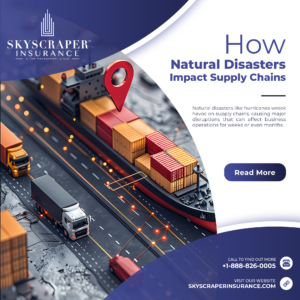May 15, 2020
Shareholders of American International Group Inc strengthened their support for the U.S. insurance company’s executive compensation plan after the board made changes to its pay packages, according to vote totals AIG released on Thursday.
Nearly 94% of the shareholder votes tallied supported the board’s 2020 executive compensation plan, AIG said. That compares with votes of 55% in favor of the plan in 2019 and 62% in 2018.
AIG was criticized for excess after it received a $180 billion taxpayer bailout in 2008 while still paying executives tens of millions of dollars and paying for posh client events.
Criticism was reignited under Chief Executive Officer Brian Duperreault, who joined the U.S. insurer in May 2017 with a lucrative package and presided over pay to other executives with few strings attached.
Two proxy advisory firms, which suggest how shareholders should vote on executive pay and other proposals, gave AIG’s 2020 pay plan cautious approval before the vote, saying the board had made enough changes to warrant a “yes” vote.
They noted, however, that the company’s stock performance has been poor, that Duperreault is compensated more than peers, and that AIG has room to improve structural issues with executive pay.
AIG said that nearly 659.9 million shares voted in support of the pay plan, and 42.6 million against. All other AIG proposals passed during the Wednesday shareholder meeting.
A shareholder proposal to make it easier for shareholders to call special meetings was voted down 56% to 44%. The tally was 393.5 million shares against and 309 million in favor, AIG said.
Zurich Insurance Q1 P&C Premiums Up; Sees $750M COVID-19 Claims In FY20
Zurich Insurance Group AG on Thursday reported that its first-quarter gross written premiums in Property & Casualty or P&C increased 5 percent to $9.68 billion from last year’s $9.18 billion, with growth tempered by adverse currency developments in Latin America.
On a like-for-like basis, P&C gross written premiums grew 7 percent driven by growth from EMEA and North America.
P&C claims from COVID-19 of $280 million has been recognized in the first quarter.
Life annual premium equivalent or APE was $958 million, down 19 percent on a reported basis and down 10 percent on a like-for-like basis from the prior year.
Farmers Exchanges gross written premiums dropped 1 percent from last year to $5.14 billion.
Going ahead, the company expects P&C claims from COVID-19 to be in region of $750 million for 2020.
Further, developments in financial markets and ongoing weaker economic activity also would have an adverse impact on both revenues and earnings through the remainder of the year.
Group Chief Financial Officer George Quinn said, “The impact of claims related to the COVID-19 outbreak and the sharp falls in financial markets in the latter part of the first quarter are expected to remain a 2020 earnings event. Group solvency remains strong and together with the diversity of our business and our conservative balance sheet, I am confident that the Group is well placed to manage the current challenges.”
CA Insurance Department Issues COVID-19 Protection for Policyholders from Unfair Settlement Practices
The California Department of Insurance (“Department”) is aware that during the COVID-19 pandemic, policyholders attempting to resolve claims with their insurers are facing both economic hardship and lack of access to the California court system. Due to social distancing and “stay at home” orders, California civil courts are presently operating at substantially reduced schedules and certain courts are not currently accepting new filings. Law and motion hearings and jury trials have been discontinued, often with no set resumption date. Additionally, after the California courts reopen, they will likely face a substantial backlog and are expected to give priority to criminal trials and other urgent matters, leaving civil cases essentially on hold for the foreseeable future.
Fortunately, on April 6, 2020, the Judicial Council of California issued emergency rules governing the California court system during the COVID-19 pandemic. Most importantly, pursuant to Emergency Rule 9, the statute of limitations for all California civil causes of action are tolled from April 6, 2020, until 90 days after the Governor declares that the state of emergency related to the COVID-19 pandemic is lifted. The Department has been informed that some insurers and other persons engaged in the business of insurance in this state are unfairly taking advantage of the COVID-19 crisis and providing unjustifiably low settlement offers knowing financial need is high and recourse to the civil court system in the state is currently severely limited.
The Department has also been informed that certain insurers and other persons engaged in the business of insurance in this state are lowering or failing to make settlement offers with full knowledge that, because of the reduced California court schedules, policyholders are unable to obtain prompt redress in the California court system. This lack of access to the California court system puts policyholders who are already in severe financial hardship at a disadvantage and vulnerable to unjust settlement practices.
The California Unfair Practices Act sets forth several practices that constitute unfair methods of competition or unfair or deceptive acts or practices, including but not limited to:
- Not attempting in good faith to effectuate prompt, fair, and equitable settlements of claims in which liability has become reasonably clear;
- Compelling insureds to institute litigation to recover amounts due under an insurance policy by offering substantially less than the amounts ultimately recovered in actions brought by the insureds, when the insureds have made claims for amounts reasonably similar to the amounts ultimately recovered;
- Failing to settle claims promptly, where liability has become apparent, under one portion of the insurance policy coverage in order to influence settlements under other portions of the insurance policy coverage.
Insurers and other persons engaged in the business of insurance in this state are hereby directed to comply with their various legal obligations under the California Unfair Practices Act to promptly and fairly settle insurance claims.
Any person who or which engages in any unfair method of competition or any unfair or deceptive act or practice defined in Section 790.03 is subject to a civil penalty to be determined by the Insurance Commissioner, not to exceed $5,000 for each act, or, if the act or practice was willful, a civil penalty not to exceed $10,000 for each act. The Insurance Commissioner has the discretion to establish what constitutes an act.
Commissioner Lara intends to exercise the full extent of his authority under the Unfair Claims Practices Act to pursue all available administrative remedies including substantial civil penalties against any person engaged in the business of insurance in this state that has been knowingly committing or performing any of the enumerated unfair claims settlement practices set forth in the Unfair Practices Act with such frequency as to indicate a general business practice.




